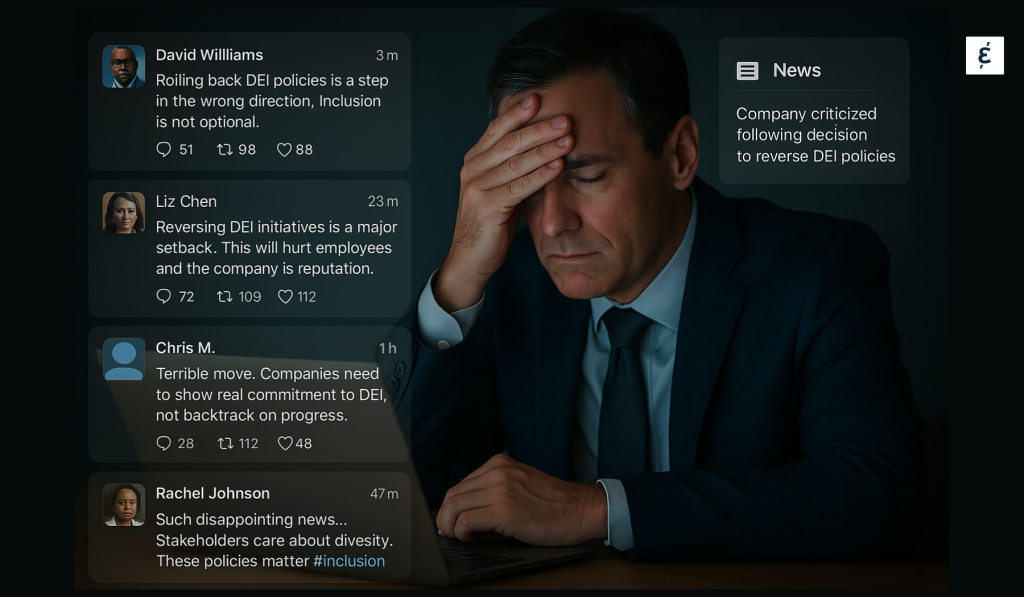

Upon returning to the White House in January 2025, President Trump swiftly dismantled federal diversity, equity and inclusion (DEI) programs through executive orders, placing DEI staff on leave and revoking mandates for government contractors.
The Equal Employment Opportunity Commission signaled a crackdown, suggesting that certain DEI policies might violate federal anti-discrimination laws.
In response, corporate America has taken divergent approaches. Some companies, such as Walmart and Target, have scaled back DEI commitments, while others, including Disney and Apple, continue to uphold them, emphasizing that inclusivity fosters innovation and strengthens business.
This divergence underscores the varying corporate strategies amid evolving political and legal landscapes.
Our report comprises two parts:
While Part One reveals that more than a third of US respondents say they now have more trust in companies that have reduced DEI initiatives, Part Two shows these opinions appear not to translate into measurable reputation changes for specific companies.
This suggests a significant gap between how Americans think about DEI policies per se and their perceptions of individual companies that either change or maintain their own policy on DEI.
We asked respondents whether the Trump administration’s policy shift on DEI had affected their own views on the issue.
What’s also interesting is that most people don’t seem to care about this issue. In all three countries, at least half of the respondents — and about two-thirds of those in Europe — either haven’t changed their position or aren’t sure what they think.
We asked respondents whether the recent decisions by several major companies to reduce their DEI focus impacted their trust in those companies.
We asked whether a company’s decision to reduce its DEI initiatives impacted consumer purchasing behavior.
In both the US and Germany, men are more likely than women to support DEI practices more, and in all three countries women are much more unsure what to think of this issue.
Men in all three countries trust companies that reduce their DEI initiatives more — but the gender gap is starkest in the US (22 percentage points).
Likewise, men in all three countries are more likely to buy products and services from companies that scale back their DEI initiatives — and the gender gap in the US is 21 percentage points.
Predictably, perhaps, there are stark differences between the views of Democratic and Republican respondents. The former overwhelmingly say they support DEI practices more today.
Even more strikingly, Democrats say they trust companies that scale back their DEI initiatives a lot less than Republicans (36% v. 7%).
And they say they’re less likely to buy products or services from those companies.
The following data is taken from our Real-Time Tracker platform and shows the Trust & Like Score — our chief metric of reputation — over the past four months for 10 major US companies that have either rolled back or defended their DEI programs.
The graph above shows that some companies saw a change to their Trust & Like Score, potentially related to their public stance on DEI. For example, Apple saw its TLS rise eight points (from 67 to 75) in February, the month its shareholders voted to maintain the company’s DEI policy. Amazon and Meta, which both scaled back their diversity programmes in January, saw their TLS fall in February.
However, the following table shows the quarterly changes in TLS for these nine companies, as well as Ford, which retreated further on its DEI policy in February. The table shows that, despite the month-to-month changes in TLS, the average score for Q1 2025 is essentially identical to the average score for Q4 2024. In other words, either changing or maintaining a corporate DEI policy appears to have had no reputational impact in this longer timeframe.
© 2024 Group Caliber | All Rights Reserved | VAT: DK39314320